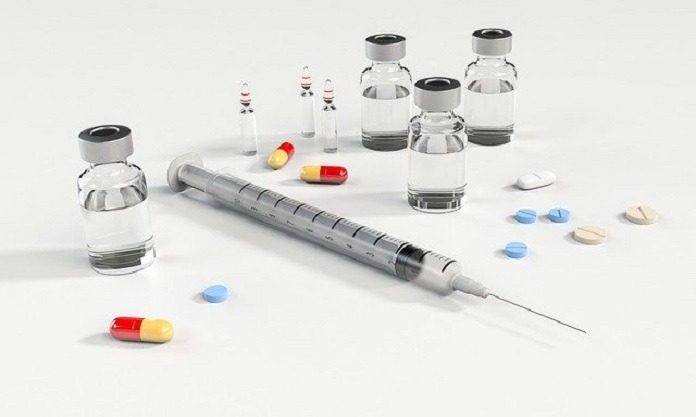A recent study suggests pharmacists may be a good fit to help people with type 2 diabetes implement dietary changes.
Type 2 diabetes is a chronic condition caused when the pancreas does not produce enough insulin to lower blood sugar (2). The prevalence of type 2 diabetes has steadily increased since the 1980s, causing an estimated 1.5 million deaths in 2019 (2). Type 2 diabetes is linked to the worldwide obesity crisis and is usually treated with blood sugar lowering medication.
Because type 2 diabetes is linked to diet, clinical studies have been performed which show that dietary changes can help to control diabetes and even lead to remission in some cases. Implementing a low-carbohydrate, low-calorie diet plan has shown success in improving the blood sugar levels of people with type 2 diabetes (3).
However, there is a risk in implementing dietary changes and managing type 2 diabetes medications. Risk includes low blood sugar, known as hypoglycemia, which occurs when the body does not have enough blood sugar to meet the body’s energy needs (4). Making dietary changes without medical input could lead to hypoglycemia.
It is often difficult for people with type 2 diabetes to get help managing their dietary requirements. Doctor appointments can take weeks to schedule and finding a registered dietitian can be especially hard for people living in rural areas (1). However, statistics show that people with diabetes visit their pharmacists twice as often as their doctors (1).
This creates a unique opportunity for people with diabetes to access medical guidance when implementing changes to their diet and medicines. Pharmacists are often easier to access in rural areas (1).
Researchers from the University of British Columbia and England’s Teesside University recently completed a study that utilized pharmacists to provide dietary and medical guidance to people with type 2 diabetes. The results were published in the journal Nature Communications.
The study followed 138 people with type 2 diabetes for 12 weeks. Half of the participants were placed in the pharmacist-led therapeutic carbohydrate restriction (Pharm-TCR) group, and the rest were in the treatment as usual (TAU) group.
The Pharm-TCR group followed a commercial weight loss diet plan which restricted their calorie intake to a total of 850-1100 calories. The diet plan allowed participants to select from a variety of low-carbohydrate, energy-restricted, adequate-protein meals and snacks as well as meats and vegetables (1). The Pharm-TCR group kept their macro levels at <50 g carbohydrates, 35-45 g fat, and 110-120 g protein (1).
The Pharm-TCR group also met with their local pharmacist once a week. While at the pharmacy, Pharm-TCR participants consulted with a lifestyle coach who collected health data such as blood pressure. Based on blood sugar data, pharmacists guided participants on proper levels of medication.
The TAU group did not make any changes to their diet or medications. They were given standard medical advice per the 2013 Diabetes Canada Clinical Practice Guidelines (1). At week 6, they completed a 3-day diet record, and when they went to the pharmacy, the pharmacist and lifestyle coach collected their health data.
At the end of the study, the participant’s health and medicine data were statistically analyzed. The researchers found that the Pharm-TCR group surpassed the TAU group in all categories (1). Almost 36% of the Pharm-TCR participants were completely off blood-sugar-lowering medications. Also, their A1c levels, fasting blood sugar, triglycerides, mean body weight, body mass index, waist circumference, body fat percentage, and blood pressure levels were lower than those in the TAU group (1).
In a press release study co-author Dr. Jonathan Little said, “When Type 2 diabetes patients follow a very low-carbohydrate or low-calorie diet, there is a need to reduce or eliminate glucose-lowering medications. Community pharmacists are ideally positioned to safely and effectively deliver interventions targeted at reducing diabetes medications while promoting Type 2 diabetes remission.”
References:
- Durrer C, McKelvey S, Singer J, et al. A randomized controlled trial of pharmacist-led therapeutic carbohydrate and energy restriction in type 2 diabetes. Nature Communications. 2021;12(1). doi:10.1038/s41467-021-25667-4
- World Health Organisation. Diabetes. Who.int. Published April 13, 2021. Accessed September 15, 2021. https://www.who.int/news-room/fact-sheets/detail/diabetes
- Taylor R. Calorie restriction for long-term remission of type 2 diabetes. Clinical Medicine. 2019;19(1):37-42. doi:10.7861/clinmedicine.19-1-37
- hypoglycemia. The Free Dictionary. Accessed September 15, 2021. https://medical-dictionary.thefreedictionary.com/hypoglycemia
- Image by Arek Socha from Pixabay



